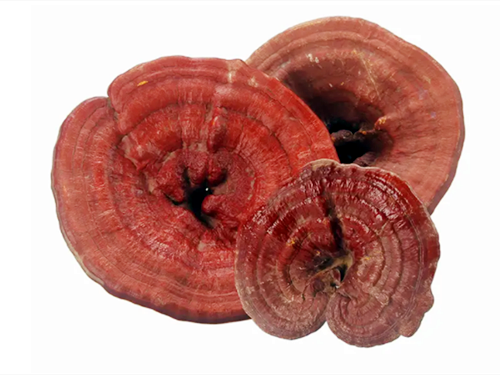Mushrooms are not only food, it is between meat and vegetables, low in calories, cholesterol free, contains ergosterol and linoleic acid, oleic acid, linolenic acid and other essential polyunsaturated fatty acids, but also contains all the essential amino acids required for human metabolism, fully meet the needs of vegetarians. In addition, mushrooms contain a variety of immunomodulatory compounds, such as polysaccharides, polyphenols, terpenoids and proteins. One group stands out for its therapeutic potential – beta-glucans. These complex polysaccharide are garnering increasing attention for their immune-boosting and a variety of health problems. In this article, we will talk about the world of medicinal mushrooms to discover which of these medicinal mushrooms contains the most beta-glucans.
While beta-glucans come from a variety of sources, including oats, yeast, barley, and bacteria, mushroom beta-glucans differ from wheat-derived beta-glucans in that their unique beta -(1,3) bonds are attached to branches with beta -(1,6) bonds and are abundant primarily within the cell wall of mushrooms. β-glucan components can be obtained in medicinal mushrooms such as hericium mushroom, shiitake mushroom, Ganoderma lucidum, Chaga, Cordyceps sinensis and Coriolus versicolor. Numerous medicinal mushrooms have been studied for their beta-glucan content and potential health benefits. Its structure is dominated by β-1, 3-glucoside linkage and contains some branch chains of β-1, 6-glucoside linkage, which has strong antioxidant activity.
While there isn’t a one-size-fits-all answer to which mushroom contains the most beta-glucans, the content and yield of β-glucan were also different in several mushroom species and different extraction processes. Let’s take a closer look at some of them:
Reishi Mushroom
Reishi mushroom holds a special place in traditional Chinese medicine and is renowned for its potential to support the immune system and promote overall well-being. It contains a substantial amount of beta-glucans, particularly the beta-1,3/1,6-glucan variety.
Shiitake Mushroom
Shiitake mushrooms contain beta-glucans that have been studied for their immunomodulatory effects. The beta-glucans in shiitake mushrooms are primarily of the beta-1,3/1,6 variety, similar to those found in Reishi mushrooms.
Maitake Mushroom
Maitake mushrooms have a long history of traditional use in traditional Chinese Medicine. They are rich in beta-glucans, particularly the beta-1,3/1,6-glucan variety, which has been associated with immune-enhancing effects and potential anti-tumor activity.
Chaga Mushroom
Chaga mushrooms contain a unique type of beta-glucan known as beta-1,3-D-glucan, which has been linked to immune-stimulating properties.
Turkey Tail Mushroom
The Turkey Tail mushroom(Trametes versicolor) is recognized for its vibrant colors and distinctive appearance. It contains a significant amount of beta-glucans, particularly the beta-1,3/1,6 variety. Research suggests that Turkey Tail mushrooms may have immune-enhancing effects, making them a subject of interest in the field of complementary and alternative medicine.
Certain mushrooms are known for their high beta-glucan content, which varies between different growing conditions, harvesting and processing, maturity and extraction methods. The β-glucan from mushroom extract includes hot water extraction, ultrasonic-assisted extraction (UAE), microwave extraction and supercritical fluid carbon dioxide extraction. Among them, UAE can effectively decompose β-glucan from the mushroom cell wall, using less solvent, while maintaining a higher product yield and a stronger polysaccharide matrix. In one study, the content of β-glucan in five kinds of freeze-dried mushrooms commonly used in China, namely oyster mushroom, shiitoki mushroom, bisporus mushroom, white button and enoki mushroom were analyzed by UAE and ethanol precipitation method.
The tests found that freeze-dried mushrooms had higher levels of beta-glucan than crude polysaccharide extracts, which was evident in oyster mushrooms and shiitake mushrooms, with only half and a quarter of the beta-glucan content of their freeze-dried forms. The decrease in β-glucan content may be due to the removal of water-insoluble β-glucan during the extraction process, leaving only the UAE-extracted supernatant. In addition, there are no additional pretreatment steps to remove other impurities present in the crude polysaccharide, including alpha-glucans, proteins, minerals, and difficult-to-digest starches.
The world of medicinal mushrooms is a treasure trove of potential health benefits, and their beta-glucan content plays a significant role in their therapeutic properties. As a type of dietary fiber, beta-glucan in mushrooms works synergistically with other nutrients to help regulate immune system function, regulate blood sugar and cholesterol levels, and protect cardiovascular health. While several mushrooms stand out for their high levels of beta-glucans, the exact content can vary based on a range of factors. Remember to prioritize a holistic approach to health and consult with healthcare professionals when needed.
- Dandelion Extract: What It Is, Benefits, Uses and Side Effect - April 23, 2024
- Is Berberine Extract Help For Weight Loss? - April 11, 2024
- Why Is Pysllium Husk Powder A Popular Meal Replacement Ingredient? - April 3, 2024




